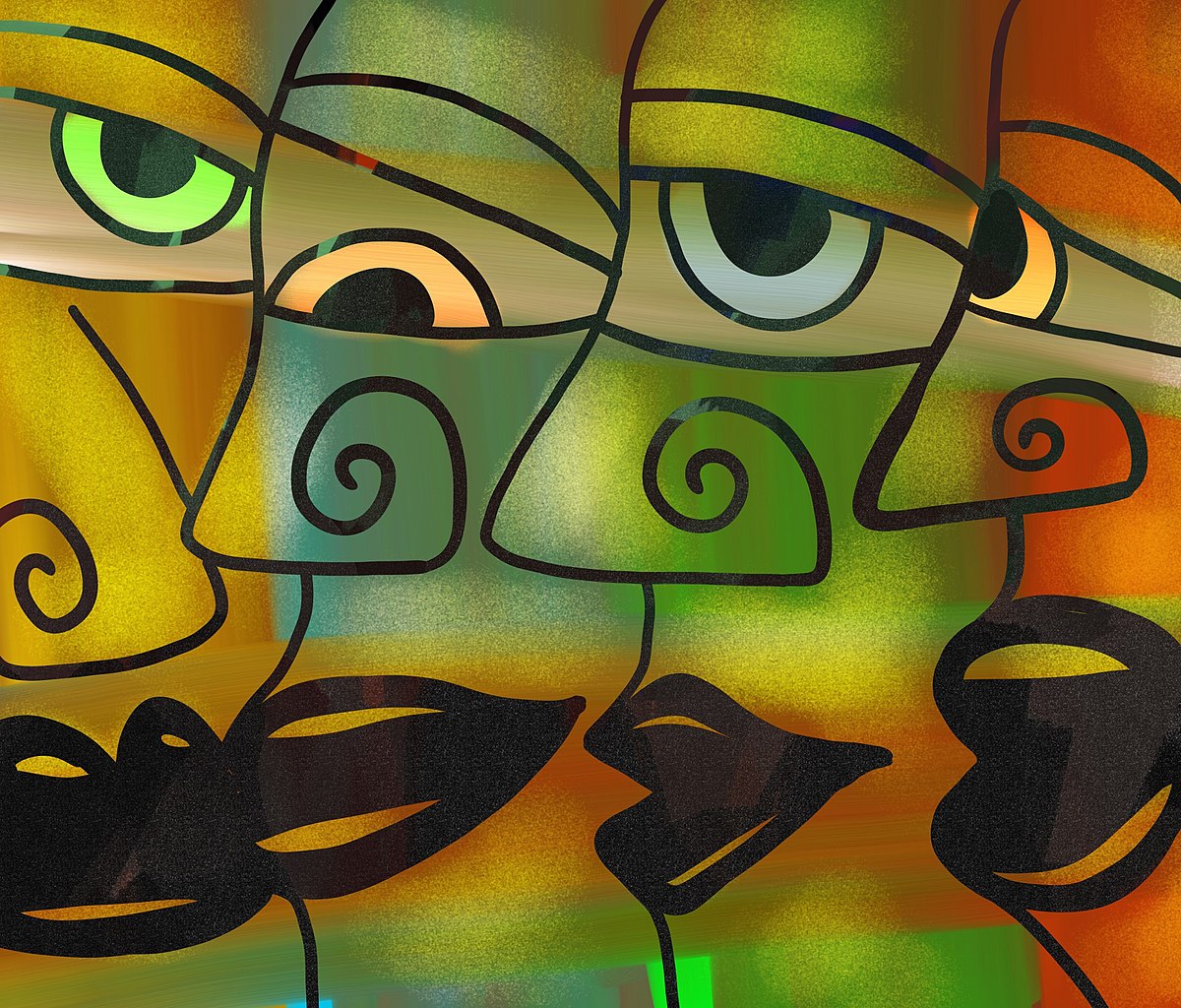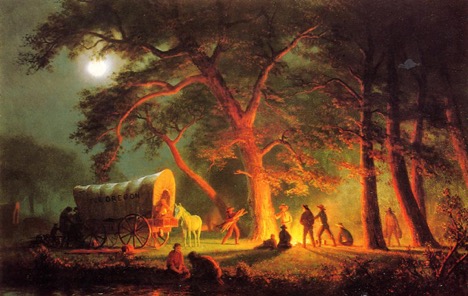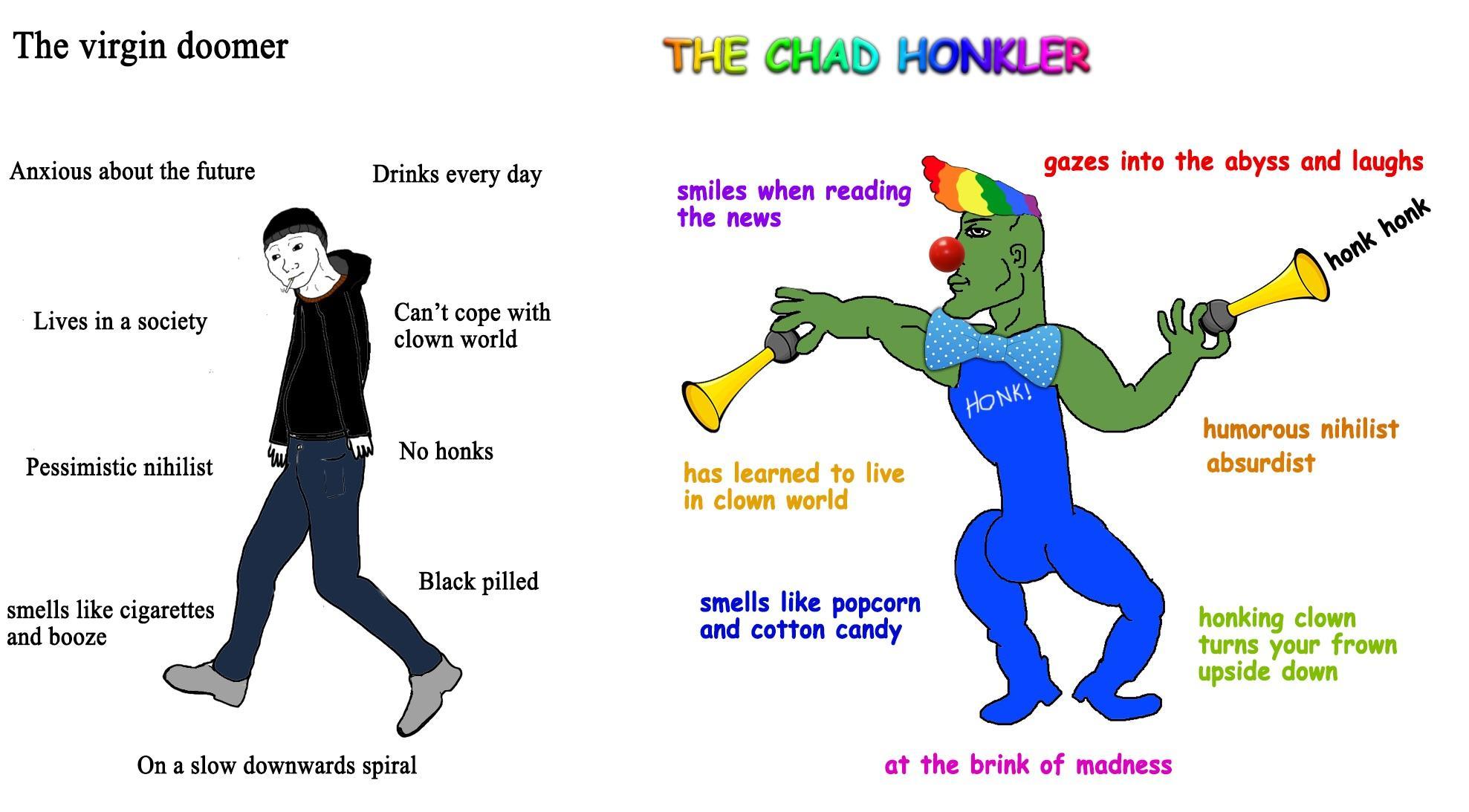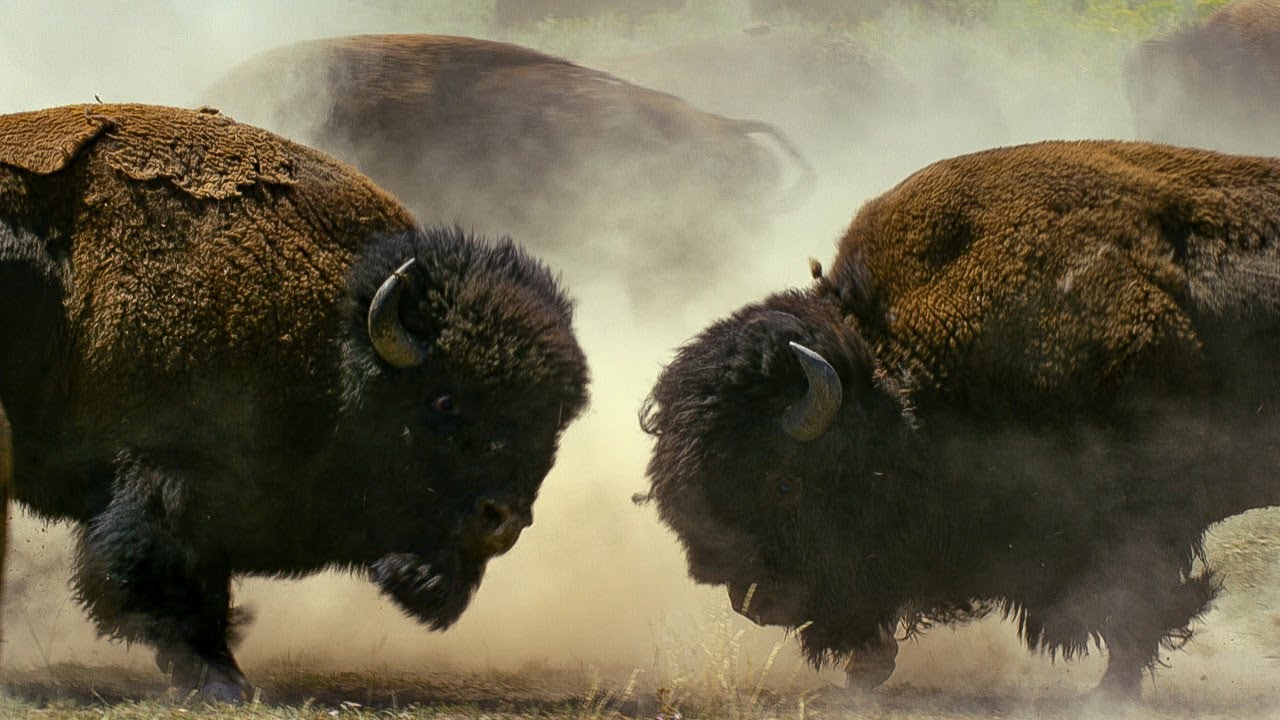And no culture without history.
Crisis of the Creed Divided

Messy pluralism may now be the most Americans can attain.
That Americans no longer agree on what it means to be American seems, today, to be the key question challenging—and ultimately eluding—both political theorists and philosophers.
Just a decade ago, or even less, it seemed that the United States was a “normal” democracy, defined by policy differences rather than rawer, existential divides over “who we are.” In much of his later work the late Harvard political scientist Samuel Huntington was preoccupied—perhaps overly preoccupied—with culture. His conclusions may have been wrong. He might have drawn overly simplistic and stark lines between otherwise malleable and layered identities and civilizations. But he was right to foreshadow the fundamental shift in Western democracies away from the staid technocratic debates of the post-Cold War era. As the book critic Carlos Lozada put it in an essay on Huntington’s legacy: “Sometimes a prophet can be right about what will come, yet torn about whether it should.”
After Donald Trump won in 2016, his opponents, at once accusatory and grandiose, took to saying things like “this isn’t who we are.” This wasn’t a statement of policy but of identity. In the grand story of progress, right-wing populists weren’t just people to disagree with: they became, in effect, enemies of History.
But what if who we are is precisely this: a country and a people divided? And what if the challenge is not one of resolving or bridging the divide but of managing something that has already become irrevocable? In this sense, polarization may be a product of resisting this new reality and trying to fight it. If this is true, it may be better to aim for a messy and deep pluralism, then to attempt to reestablish or revive an American “creed,” however admirable Charles Kesler’s efforts are in this regard.
Kesler helpfully defines creed as something that gives greater meaning and coherence to culture. “One needs some ‘creed,’ it turns out, to make sense of culture,” he writes. “I mean creed, not merely in the sense of things believed (sidestepping whether they are true or not), but in the sense of moral principles or genuine moral-political knowledge.”
The problem with something as important as creed is that it can easily become subject to one side’s exclusivist claims over the other. If you asked liberals and Democrats whether Trump supporters have somehow violated the American “creed,” most would almost certainly say yes. And, likewise, Kesler ends up doing something similar but from a more philosophical premise. He argues that liberals have “proudly” broken with the American creed because they have rejected reason, “understood as a natural capacity for seeking truth, in favor of reason as a servant of culture, history, fate, power, and finally nothingness.” If liberals have done this, and done so proudly (and presumably consciously), then they are unlikely to return to the straight path. We are then at an impasse, with two large groups of people—all Americans, and the vast majority of them believing that they are true to America’s creedal requirements—thinking that the other has betrayed that creed.
This is both the promise and the burden of creedal nations: what their citizens claim to stand for and believe in—because it is basically ideological rather than ethnic—becomes passionately contested. Anyone can, in theory, become American, and every American has some purchase on the American idea. Competing groups of Americans all refer back to the country’s founding ideals, even as they claim to update basic principles for the modern era.
But is a lack of consensus on the nature of American creed and identity a problem in need of solving? Kesler seems to think it is (as did Huntington). But consensus is only possible when there is already a consensus, and there rarely is. Even America’s previous proud eras of unity and purpose only became what they are in retrospect. Agonistic theorists like Chantal Mouffe, William Connolly, and Ernesto Laclau view consensus as a threat to a truly democratic politics. “All forms of consensus are by necessity based on acts of exclusion,” Mouffe writes in The Democratic Paradox. Politics is, and should be, confrontational, with confrontation and conflict bracketed within a peaceful, democratic process.
The kinds of divisions that all modern societies face cannot be reversed, since they are the very product of modern societies, where unprecedented numbers of ordinary citizens are educated, have access to competing sources of information, and can share their own (somewhat uninformed) opinions on social media platforms. This diversity, with Americans laying claim to different understandings of the creed, would be difficult if not impossible to undo. To even attempt to undo it would require some degree of exclusion and coercion. To reconstitute a more stable and unanimous conception of the American creed would, in effect, require one group of Americans—the right Americans—to “win.”
But in a democracy, there are no final victories.
The American Mind presents a range of perspectives. Views are writers’ own and do not necessarily represent those of The Claremont Institute.
The American Mind is a publication of the Claremont Institute, a non-profit 501(c)(3) organization, dedicated to restoring the principles of the American Founding to their rightful, preeminent authority in our national life. Interested in supporting our work? Gifts to the Claremont Institute are tax-deductible.
Conservatives must realize that in terms of creed and culture, we are past the point of no return. It's time for an offensive strategy.
America needs many voices to make good on its creed.
Statesmen and citizens alike must contend with the relationship between American creed and culture.




